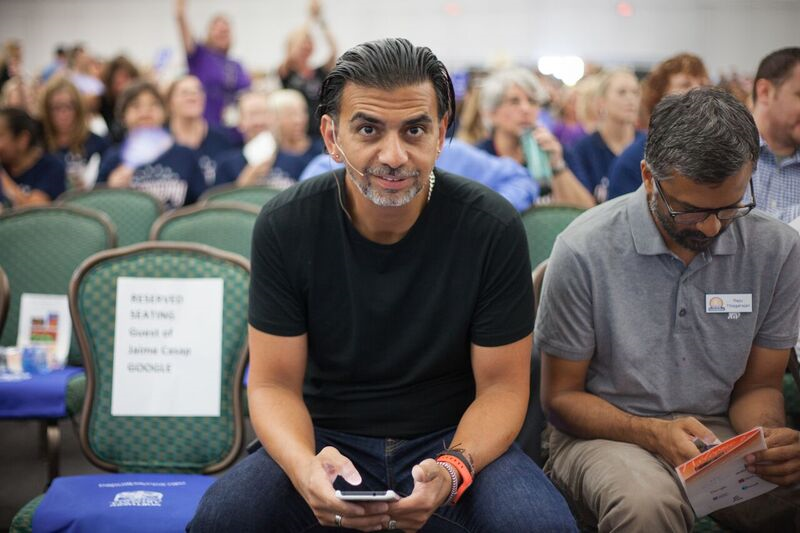Your title ‘evangelist’ suggests you’re on a mission of conversion. Is converting people to the power of technology and the web in education really still a hard sell?
If you notice, my title isn’t ‘Technology in Education Evangelist’, it’s ‘education evangelist’. Believe it or not, education is a hard sell. Here in the US, teachers are underpaid, schools are under-resourced, and funding continues to drop for school districts and higher education institutions across the country. My passion for education comes from the belief that education is everything. Education disrupts poverty. Education changes and moves our society forward.
When it comes to the use of technology, what I talk about is making sure we are using it to its full potential. If all we do is take technology and lay it on top of our current system, then we are making the old system faster. We have to change our education models, bring to the front the best ideas we have in education, and then asking, how do we use technology to bring these ideas to life?
We keep hearing that the jobs students are training for today won’t actually exist by the time they finish their education. You teach and you’re a dad – what’s your approach to helping prepare young people for an uncertain future?
65% of the jobs of the future do not exist today. More importantly, even the jobs that survive will continue to shift and change. Automation, robotics, technology, machine learning will keep changing the meaning of work and how it's done. We can't keep training students the same way. An example is that we still ask students "what do you want to be when you grow up?" That is an old world question. We should be asking them "what problem do you want to solve? How do you want to solve it? What do you need to learn to solve that problem?" This gets us closer to the way the world is shaping up to be.
Like the US, Australia once had a strong manufacturing sector that employed all kinds of professions, from the unskilled production line worker, to engineers and entrepreneurs. Have we seen the last of those days?
Yes and no. Many advanced economies lost manufacturing jobs to cheaper labour in developing countries. Well, even in those developing countries, robotics and automation will continue to redefine what those jobs will look like in the future. Humans build things, it's human nature. So what we need to think about is ‘what will humans build that machines cannot build in the near future?’
How do you see technology impacting on your own work life in the next 5-15 years?
Technology has been impacting my job since I started working 25 years ago. When I showed up at my first job there was a computer on my desk. Five years before that we had typists take handwritten notes and type them on typewriters. A lot of my work has to do with critical thinking, research, creativity, problem-solving and collaboration, and I see technology, not as something that is replacing all those elements, but rather, complimenting them. For example, because of technology, especially video technology, I can collaborate with folks all over the world! I hope that technology keeps getting better.
What’s your advice for mid-career people who are concerned their jobs are at risk from technological advances?
They have to evaluate their skills and experiences and ask themselves, are these skills on the track to be automated? They need to focus on building critical human skills – problem-solving, collaboration, creativity, critical thinking, and digital literacy skills. Computer science is the language of the new economy, and having digital literacy skills will be critical for the future.
Do you see that new education models like UNE’s Bespoke Courses will become a critical component of how working adults cope with / capitalize on, a rapidly changing workplace?
Absolutely! The idea that you graduate from secondary school, take four years of courses and get a degree, and maybe a few graduate classes, and that will be all you need in terms of education for the rest of your life is insane! We have always talked about lifelong learning but we have never really meant it. We have to mean lifelong learning. Learners will have to learn new skills for the rest of their life, even in areas they have expertise in! For example, my daughter graduated from college three years ago with a degree in film. She took a lot of video production classes and uses the content every day in her current work. However, she has taken a few new classes in video production because the technology moves so quickly. We have to be lifelong learners!
What can people expect to take away from your keynote address at the Future of Work event?
My hope is that they come away with a different perspective on education, the world Generation Z will face, and the skills needed to thrive in the new economy. I am looking forward to being there!


